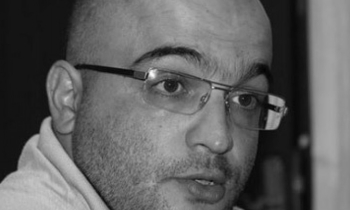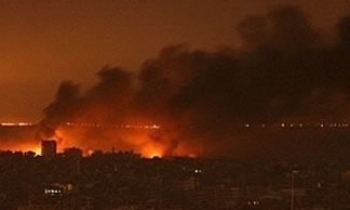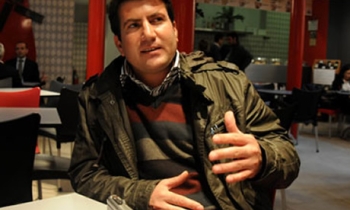The ‘war on terror’ in Europe has seriously affected freedom of expression while providing little benefit in fighting terrorism. The last seven years have seen many policy and legislative changes in several nations which have threatened journalists' ability to gather and disseminate information.
Since 2001, nearly all European countries have revised their legislation and policies relating to fighting terrorism. However, journalists are increasingly under pressure with detentions, shutting down of newspapers, and prosecutions being rampant. The right to free expression is facing significant challenges due to new counter-terrorism efforts, reveals a new report.
The most significant challenge is from the creation of new crimes for speech that is seen to encourage, either directly or indirectly, terrorism. Restrictions have expanded from existing prohibitions on incitement to much broader and less defined areas such as glorification or 'apology' for terrorism. Some countries have even adopted broad prohibitions on other speech critical of national institutions and symbols. Internet-based speech has also been affected with attempts to block or remove websites with controversial material.
The 'Speaking of Terror' report by Privacy International for the Council of Europe (CoE) Media and Information Society Division reveals the effects that new counter-terrorism laws have had on media and the right to freedom of expression in European countries.
Protection of journalists' sources is often undermined by governments seeking to identify officials who provide information even though this protection is widely recognised both in national laws and in decisions of the European Court of Human Rights (ECHR). Newsrooms are often searched.
State secret and national security laws are regularly being used against journalists and their sources even as access to information laws are widely accepted and adopted across CoE. There are also growing restrictions imposed on photographers not based in law.
New anti-terrorism laws give authorities wide powers to conduct surveillance. Other new laws impose technical and administrative requirements on the ability to intercept communications and on keeping information. Even data retention laws have become of particular concern are which require the routine surveillance of all mobile and Internet users that can be used to easily identify sources and journalists' investigations.
The report also inspects the roles of the United Nations Security Council, European Union (EU) and Council of Europe in promoting new laws while paying little attention to human rights. CoE and EU have adopted many international agreements that either ignore or only pay scant attention to fundamental human rights and the importance of a free media. Their agendas are often driven by those countries that are most aggressive in adopting expansive counter-terrorism laws including the UK, US and Russia.
Even the more narrowly-defined incitement laws have raised questions when applied to the media. For instance, in Azerbaijan, opposition editor Eynulla Fatullayev was convicted of inciting terrorism and sentenced to 8½ years for an article opposing Azerbaijan’s support of US policies relating to Iran. He was previously imprisoned for criminal libel. In Austria, Danish cartoonist Jan Egesborg was arrested and had his materials seized for putting up posters in the Vienna underground which criticised Russian President Vladimir Putin over the killings of Russian journalists by prominently placing the words “shoot” and “Putin” on the poster. More controversial has been the adoption of laws on “glorification”, “apology” or “public promotion” of terrorism.
Countries are also increasingly adopting laws that prohibit the possession of terrorist materials. One of the dangers with these kinds of laws being that it can also apply to journalists or scholars who collect the information to better understand the mind-set of the terrorists. In the UK, the Terrorism Act 2000 prohibits the possession of information that would be useful to commit a terrorist act. The Court of Appeals ruled in 2008 that the law required that the information must not just encourage terrorism but must provide practical assistance.
Moreover, it is well established that journalists’ sources are crucial to freedom of expression. Journalists are often given information with the expectation that they will not identify the source that could be fired, arrested or harmed if their roles are revealed. The information given has been kept from the public as it is often classified, sensitive, private or embarrassing.
Even in the existence of the strong protections of ECHR, CoE normative texts and national laws, there have been many cases in member states where journalists have been detained and newspapers searched to identify sources. Broad security laws have often been used against journalists to force them to disclosure their sources. For example, in the UK, the Manchester police used powers under the Terrorism Act 2000 to demand that journalists from the Sunday Times, BBC, CBS and other news outlets give all information about a former terrorist that they had interviewed. Author Shiv Malik was required to disclose copies of his notebooks after a court reduced the amount of information he was required to disclose.
Terrorism is often used as a talisman to justify stifling dissenting voices in the way that calling someone a communist or capitalist were used during the Cold War. In too many cases, the legislation and policies adopted are disproportionate and appear to be used in abusive ways not to protect public safety and the nation but rather the political interests of governments.
The role of the national courts and ECHR have been unsatisfactory. The national courts have not universally recognised the requirements of the European Convention on Human Rights. The European Court case-law on incitements and publication of secrets has been inconsistent and does not easily set boundaries that countries should follow. Cases take nearly a decade to be decided and remedies are not adequate to ensure the problems will not occur again.
There are few positive trends. Nearly all member states now have legal recognition of the rights of any citizen to demand information from government bodies. Almost all also recognise the fundamental rights of journalists to protect their sources. However, these have also regularly being undermined by security legislation which allows government officials broad discretion to act in the name of fighting terrorism.










